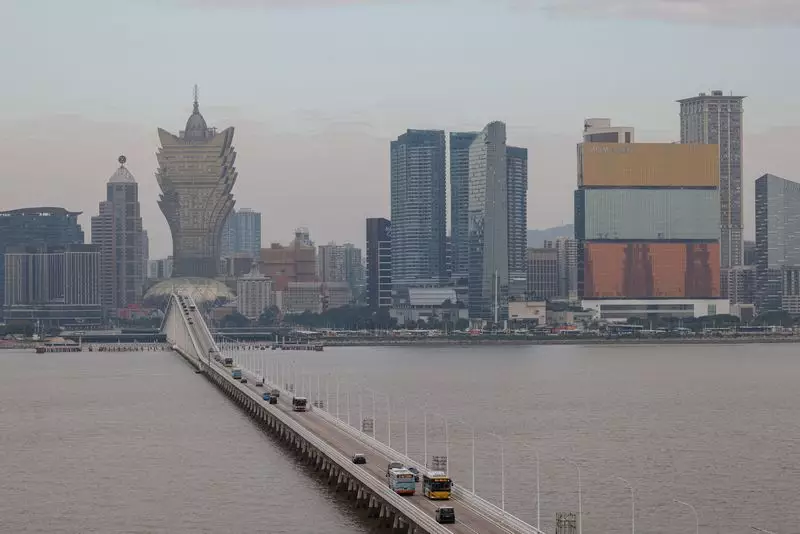In 2024, Macau, the globe’s largest gambling hotspot, reported a remarkable increase in casino revenues, soaring by nearly 24% compared to the previous year. The Gaming Inspection and Coordination Bureau’s figures reveal that the total revenue amassed was a staggering 226.8 billion patacas (approximately $28.35 billion), exceeding government forecasts but still falling short of the pre-pandemic benchmark of 292.5 billion patacas recorded in 2019. This statistic serves as both a beacon of recovery and a stark reminder of the economic volatility that lingers in the backdrop, particularly as global economic conditions continue to evolve.
Despite the encouraging figures in gambling revenues, the findings underscore an urgent need for Macau to diversify its economic base. The dependency of its economy on the gaming sector, which constitutes around 80% of tax revenue, raises significant concerns about long-term sustainability. Recent developments indicate that while Macau’s economy has rebounded to some extent, it remains vulnerable to fluctuations in the gaming industry and geopolitical factors, especially with strict regulations stemming from China’s anti-corruption initiatives.
President Xi Jinping’s visit in December highlighted this pressing issue, as he encouraged Macau to pursue courage in diversifying its industrial framework. Such advice emphasizes the necessity for the region to improve its economic resilience and lessen the overreliance on casinos, particularly in light of the significant decline in VIP gambling revenues, exacerbated by prolonged travel restrictions during the pandemic.
During his visit, President Xi also spoke about the importance of integrating Macau’s economy with national strategies, particularly in connection to the Greater Bay Area—an ambitious initiative that looks to synergize economic growth among major cities surrounding the Pearl River Delta, including Guangzhou and Hong Kong. Xi’s remarks suggest a proactive approach towards fostering connectivity and collaboration with nearby regions.
Furthermore, Xi highlighted the potential for Macau to engage more fully with Portuguese-speaking nations and the Belt and Road Initiative, emphasizing both cultural ties and economic trade routes that could signal a new chapter in Macau’s economic strategy. This outreach to international partners represents a potential pivot for Macau, aiming to broaden its influence and establish itself beyond the shadows of the casino floor.
While the surge in Macau’s casino revenues serves as a promising indicator of recovery, it provides only a partial picture of the territory’s economic landscape. The risks associated with a predominantly gambling-driven economy, alongside ongoing global shifts, underscore the importance of strategic diversification. By forging stronger connections with the mainland and engaging in global initiatives, Macau has the opportunity to redefine its economic identity and safeguard its future. The path forward lies in embracing change and innovation, steering away from sole reliance on gaming revenues, and crafting a diversified economy that can withstand the pressures of an unpredictable world.

